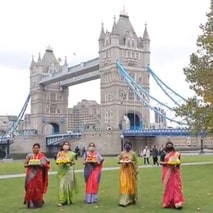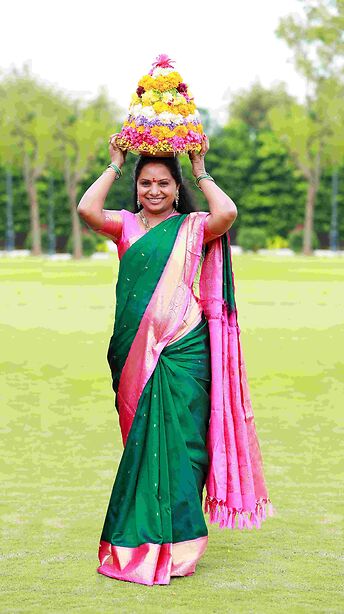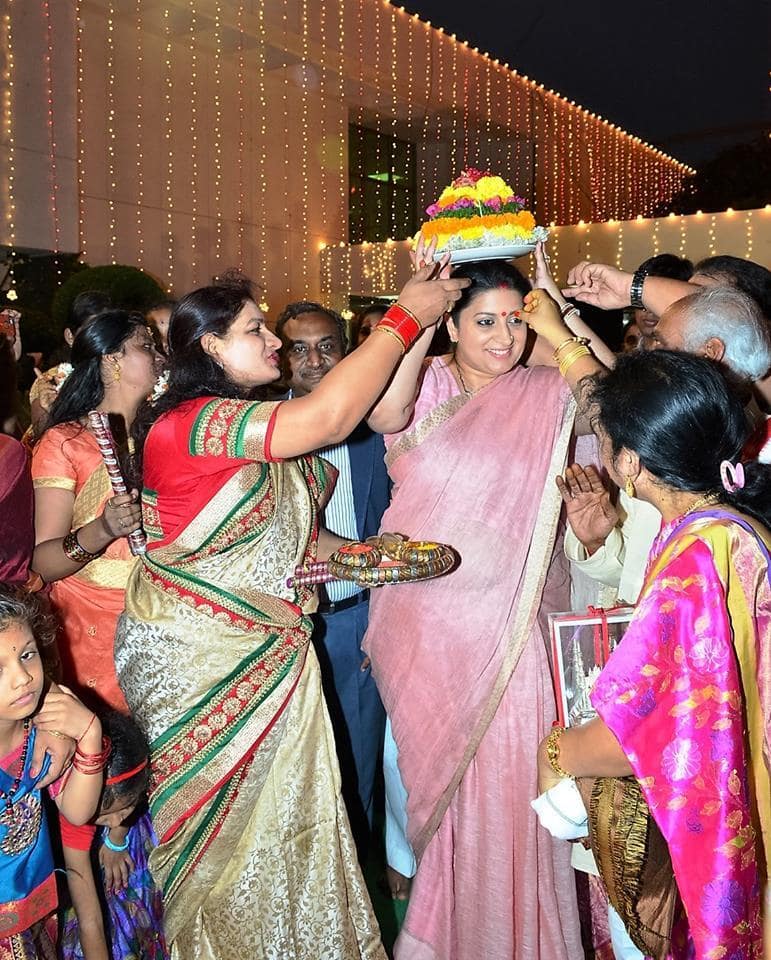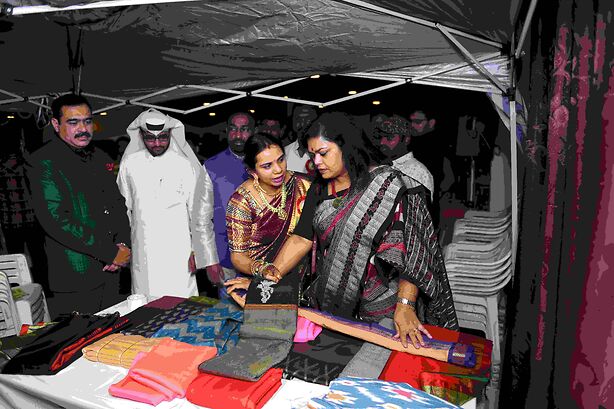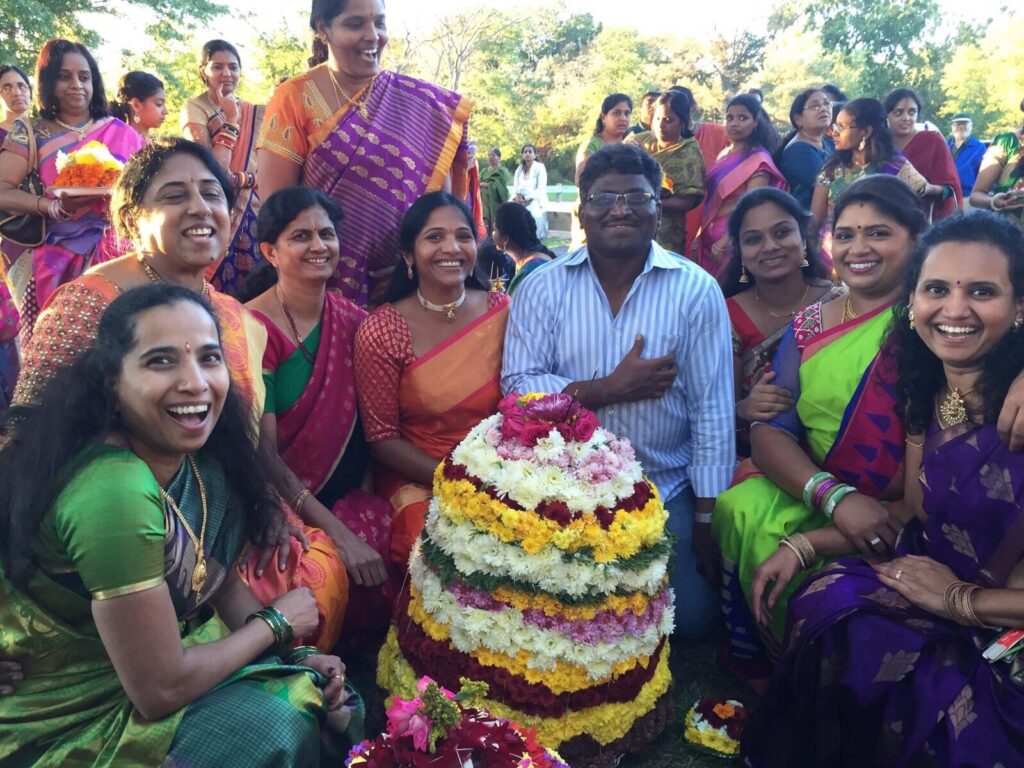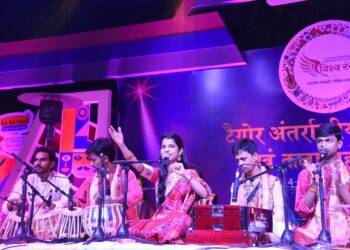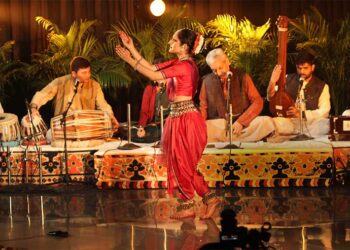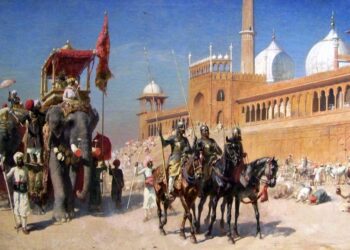Bathukamma, the Telangana festival of flowers, is unique for its folk elements and its popularity among the people
By Harsha Bhargavi Pandiri
Flowers are associated with divinity not only in India but across the world. There are goddesses of trees, plants, and flowers. In Greece, the goddess of flowers is called Antheia, Flora in Rome, Xochiquetzal in Aztec mythology. Certain flowers are also associated with gods like the passion flower with Christ, the lotus with Lakshmi.
In various parts of the world, festivals of flowers are celebrated. Medellin city in Colombia organises a social event in August with a parade and concerts with an explosion of flowers. There are similar festivals in other cities and other countries, like the Pasadena Rose Parade in California and the cherry blossom or Sakura Festival of Japan. Morocco celebrates a festival of roses in May each year in the town of Kelaat M’gouna in the Sous-Massa-Draa region of Tinghir province. The largest parade of flowers in the world, the Bloemencorso (flower parade), is organised in Zundert in the Netherlands. In the Italian city of Genzano, Infiorata, the flower festival, is celebrated every May/June with a flower carpet rolled out along the entire street of Belardo. Chiang Mai in Thailand holds a three-day flower festival every February.
In India, the state of Telangana celebrates the colourful floral festival of Bathukamma which is now also celebrated across the globe. It falls in the latter half of the monsoon season and before the onset of winter. The festival, celebrated largely by women, starts two days before Dussehra. The nine-day celebration involves the making of small bathukammas or flower arrangements, observing rituals around them in the evenings and immersing them in a nearby pond.
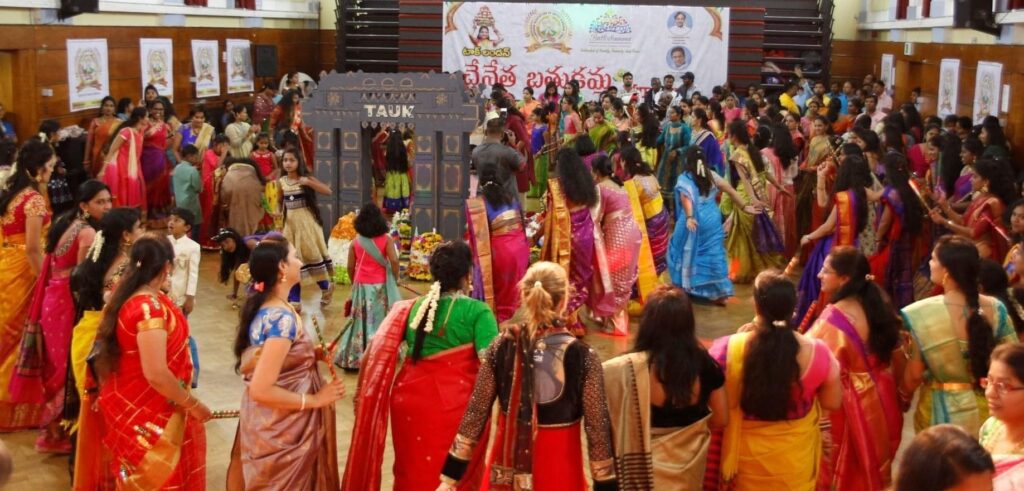
The Telangana Jagruthi, under the leadership of K. Kavitha, has mobilised people around the world to celebrate the rich cultural heritage of the Telangana region.
The Bathukamma festival symbolises the inherent relationship between the earth, water, and humans.
Bathukamma legend
According to various sources, there are three interesting stories behind the festivity. One version says there was once a king, Dharmangada, of the Chola dynasty who ruled south India, and had a girl child after many years of performing rituals and prayers. The child was named Princess Lakshmi. She faced many unforeseen incidents and accidents. The parents feared for her and renamed her Bathukamma (‘Bathuku’ means life and ‘Amma’ refers to a female name or ‘mother’).
According to another version, King Dharmangada had lost a hundred sons in war and, after offering prayers to Goddess Lakshmi, was bestowed with a daughter. Scholars and pandits blessed her by calling her ‘Bathukamma’ or ‘live forever’.
Similarly, Parvati or Bathakamma is a great admirer of flowers. During Dussehra, a gopuram (temple spire) of seasonal flowers is placed beside a lump of turmeric and worshipped.

H E Tamilisai Soundararajan,Governor of Telangana with Bathukamma-celebrations-in-Raj-Bhavan 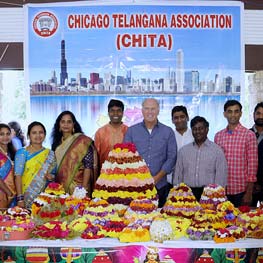
Chicago-Telangana-Association-Bathukamma-Celebrations
The wild and seasonal flowers used in Bathukamma have vibrant colours and are found in uncultivated and barren plains. They also have medicinal properties, being celosia, senna, marigold, chrysanthemum, Indian lotus, curcurbita, cucumis, ipomoea, luffa, tridax, ajwain et al.
The festival is celebrated for nine days with a name and an exclusive food offering dedicated to each day and the rituals are performed in the evenings. The bathukamma is made in the form of a pyramid or a gopuram with all the flowers named above. In the evening, all the women and young girls gather in large numbers and place their bathukammas in the centre and dance around, clapping and singing folk songs. The songs have the lilt of swinging and the lyrics are focused on Chandamama (moon) or Gouramma (a goddess). The lyrics also seek the blessings of the goddess for good health, prosperity and happiness. After the prayers and naivedyam (food offering), the bathukammas are immersed in a nearby pond. It is believed that the flowers purify the water and detoxify it, which is good for animals, plants, and humans.
The movement for a separate state included resistance against the dominance of other cultures. People of the state felt their dignity was constantly undermined in economic and cultural spheres. The cultural hegemony was perceived as having influenced the media, literature and so on.
A socio-cultural organisation named Jagruthi (meaning awakening) was founded by K. Kavitha, Member of Legislative Council and former Member of Parliament, and was registered in 2007 to protect Telangana culture, art forms, literature, language, folklore and accent. The Bathukamma festival was conducted on a massive scale to propagate cultural identity. Kavitha has relentlessly worked to bring Telangana culture onto the international platform. She played a key role in creating awareness among women and revived the dying art and culture of the state. She says people admire and are enthusiastic about indigenous art and culture across all sections. The love for indigenous arts is a common thread that binds society. Hence Bathukamma culturally connects the people of the state. In 2017, Bathukamma was organised in the Lal Bahadur Stadium, Hyderabad, with the participation of 9,292 women and the event was entered in the Guinness Book of World Records.
Jagruthi has also mobilised people around the world to celebrate the rich cultural heritage of the Telangana region.
“Telangana culture is immensely respected globally. Telugu-speaking people across the world are organising get-togethers during festivals to create a Telangana ambience for people living away from their hometowns. For the past five years, initiatives have been taken to organise exhibitions and cultural events under the guidance of the working president of the Telangana Rashtra Samithi (TRS), Minister for Information Technology, Electronics and Communications, K.T. Rama Rao garu and Kavitha garu,” said Mahesh Bigala, President, TRS, NRI Cell.
The colourful floral festival of Bathukamma is celebrated in the state of Telangana, and now across the globe. It falls in the latter half of the monsoon season, before the onset of winter.
Many Telangana women have shared their experience of celebrating Bathukamma in foreign countries. Ravi Dannapaneni, TRS, NRI Cell, US, and his wife, Sangeetha, have been organising the festival for the past 12 years in New Jersey. Despite challenges, it has gained momentum over the years. Nandini Palle, Telangana Jagruthi, Qatar, says that for Bathukamma they pre-order flowers from Indian supermarkets. Exhibitions are organised, displaying Telangana handloom products. Pavithra Reddy Kandi, in London, says that Bathukamma is celebrated in the UK on a grand scale. There is participation by local parliamentarians, councillors, and representatives from the Indian High Commission.
Sushmita, President, Indian Women’s Association, Doha, says, “I belong to Odisha and I am amazed at this unique floral festival. The festive fervour touches my heart. It represents the spirit of Telangana and it is indeed a memorable experience for me.”


